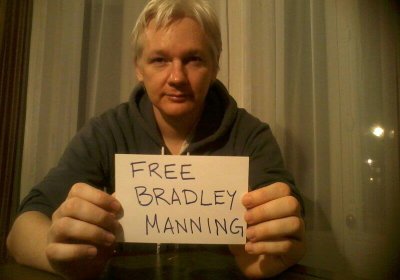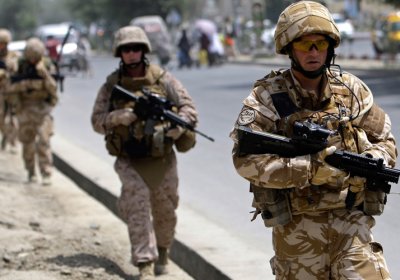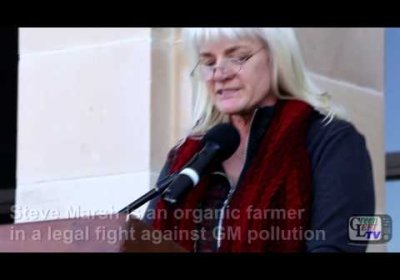The Kinetic Energy theatre company, a Sydney-based independent company, has just returned from its first national tour of the year: four weeks of performing our Village Space theatre-in-education program in Tasmania, Melbourne, Gippsland, and the Riverina, across April and May.
Over the years, we have developed an engaging way of educating young people about social justice. We focus on issues such as poverty, inequality, refugees, Indigenous struggle and the environment, and how these issues are interconnected.
967
Round Nine of the Australian Football League, held from May 24-26, was designated the “Indigenous Round” in honour of Aboriginal players and culture.
However, former Age sports journalist Trevor Grant writes that, despite progress, the AFL continues to block Aboriginal access to key aspects of the sport ― on and off the field. The article is slightly abridged from Grant's website What's The Score, Sport, where more of his writings on sport and politics can be found.
* * *
WikiLeaks released an enormous treasure-trove of classified US government documents in 2010. It included US military logs from the wars in Iraq and Afghanistan, over 250,000 diplomatic cables, and Collateral Murder, a video depicting the killing of 12 civilians by a US helicopter gunship in Iraq.
The source of the leaks, US Private Bradley Manning, acted on his conscience. He believed that people have a right to see the information he had been privy to as an army intelligence analyst. He was prepared to risk his life and liberty to reveal that information.
Quarterly Essay
Issue 49 2013
'Not Dead Yet: Labor’s post-left future'
By Mark Latham
Black Inc 2013
Margaret Thatcher may be dead, but Thatcherism is alive and well and living in the bowels of social democracy if Mark Latham’s contribution to the latest Quarterly Essay, “Not Dead Yet: Labor’s post-left future”, is anything to go by.
An important summit of global significance, held in Brazil May 16-20, has largely passed below the radar of most media outlets, including many left and progressive sources.
This summit was not the usual type, involving heads of states and business leaders.
Instead, it was a gathering of social movement representatives from across Latin America and the Caribbean -- the site of some of the most intense struggles and popular rebellions of the past few decades.
The May 22 attack in Woolwich yesterday was horrific. There can be no justification for a murderous attack on an individual soldier in the streets of London. It must have been awful, too, for the local people who witnessed it.
Unlike with most terrorist attacks or indeed other crimes, we have been able to see film footage of the perpetrators, hear testimony from the witnesses who saw or talked to them. So we know what these men say motivated them.
Over 1000 people - organisers said 1600 - marched through the streets of Perth in opposition to genetically modified organisms (GMOs) and the company Monsanto (which is one of the foremost proponents of GMO technology).
Jose Maria Aznar, Spain’s messianically neoliberal former prime minister, announced during a television interview on May 21 that he was ready again to serve his country.
“I will act in accordance with my responsibility, my conscience, my party and my country, regardless of consequences, have no doubt about that”, intoned the Popular Party (PP) leader who took Spain to war in Iraq. Aznar was defeated in the 2004 national election after claiming that the Madrid train bombing was the work of Basque Homeland and Freedom (ETA).
Socialist activists are involved in political struggles across many different issues. From equal marriage rights to defending education, refugee rights to the environment, socialists help organise and lead these campaigns, and seek to win important political reforms around them.
It might seem contradictory for socialists to fight for reforms. Since socialists oppose capitalism and the capitalist state, why is it that they campaign for measures that encourage the expansion of the capitalist state?
Registrations are now open for the Australia-Venezuela Solidarity Network’s (AVSN) next brigade to revolutionary Venezuela. The solidarity tour, to run over December 4-13 this year, will be a special one for the AVSN, the first since the election of President Nicolas Maduro following the death of Hugo Chavez on March 5.
Since 1998, when Chavez was first elected president, the Bolivarian revolution has achieved remarkable things by putting control of Venezuela’s politics and economy back into the hands of the poor majority.
I had to spend some time in waiting rooms for medical checkups recently. It was an opportunity to glance through glossy magazines.
In its latest issue, National Geographic magazine has an article entitled “Is Australia the Face of Climate Change to Come?”. It said that after a major spike in extreme weather over the past few years, scientists were looking at “the lucky country” as a “bellwether for the Earth's changing climate”.
It may not be so lucky for us but I guess being a bellwether is useful.
Najaf Mazari, an Afghan refugee, rug-maker and author addressed a meeting of about 70 people at the Eltham College in Melbourne on May 17.
He described his life in an Afghani village and his journey to a new life in Australia, including his time in a detention centre. The event was organised by the Diamond Valley Oxfam group and supported by the Eltham bookshop.
- Previous page
- Page 2
- Next page








